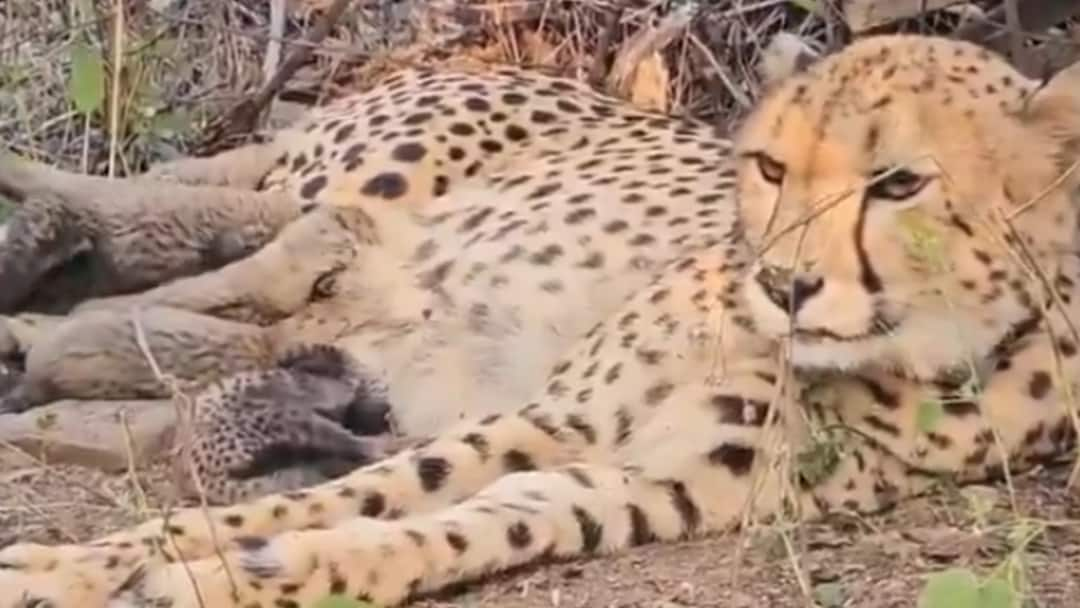Indian-born cheetah Mukhi has given birth to five cubs at Kuno National Park in Madhya Pradesh, marking a historic milestone for Project Cheetah and India’s wildlife conservation efforts. Mukhi, the first Indian-born female cheetah, has now become the first to reproduce in the country since the species was reintroduced three years ago.
Chief Minister Mohan Yadav hailed it as an “unprecedented breakthrough,” emphasising that both the mother and her cubs are healthy and doing well.
He described this event as a “strong sign” of the viability and adaptation of cheetahs to Indian habitats and expressed optimism about establishing a self-sustaining and genetically diverse cheetah population in the country.
“A historic milestone has been achieved as Indian-born cheetah Mukhi has given birth to five cubs in Kuno National Park, Madhya Pradesh. The mother and cubs are doing well,” he said in a post on X.
“The successful reproduction of an Indian-born cheetah is a strong indicator of the species’ adaptation, health, and long-term prospects in Indian habitats,” Yadav added.
A historic milestone has been achieved as Indian-born cheetah Mukhi has given birth to five cubs in Kuno National Park, Madhya Pradesh. The mother and cubs are doing well.
This is an unprecedented breakthrough for India’s cheetah reintroduction initiative. Mukhi, the first… pic.twitter.com/uSxZpVqnV4
— Dr Mohan Yadav (@DrMohanYadav51) November 20, 2025
The reintroduction of cheetahs began on September 17, 2022, when Prime Minister Narendra Modi released eight cheetahs imported from Namibia, marking India’s first-ever intercontinental cheetah translocation. Since then, the project has faced challenges but is making significant progress, with Mukhi’s successful reproduction as a landmark achievement.
Union Environment Minister Bhupender Yadav called the birth of Mukhi’s cubs “a significant development” that highlights “strong signs of adaptation, health, and long-term viability” of cheetahs in India. He added that this success reinforces confidence in the nation’s conservation strategy and hopes for a genetically diverse, self-sustaining cheetah population.
This milestone not only symbolises the adaptability of cheetahs born and raised in India but also strengthens the future prospects of Project Cheetah, which is part of India’s wildlife restoration initiatives.



